
The Congressional Budget Office (CBO) is a federal agency within the legislative branch of the United States government that provides budget and economic information to Congress. Inspired by California's Legislative Analyst's Office that manages the state budget in a strictly nonpartisan fashion, the CBO was created as a nonpartisan agency by the Congressional Budget and Impoundment Control Act of 1974.

Steven David Levitt is an American economist and co-author of the best-selling book Freakonomics and its sequels. Levitt was the winner of the 2003 John Bates Clark Medal for his work in the field of crime, and is currently the William B. Ogden Distinguished Service Professor of Economics at the University of Chicago as well as the Faculty Director and Co-Founder of the Center for Radical Innovation for Social Change at the University of Chicago which incubates the Data Science for Everyone coalition. He was co-editor of the Journal of Political Economy published by the University of Chicago Press until December 2007. In 2009, Levitt co-founded TGG Group, a business and philanthropy consulting company. He was chosen as one of Time magazine's "100 People Who Shape Our World" in 2006. A 2011 survey of economics professors named Levitt their fourth favorite living economist under the age of 60, after Paul Krugman, Greg Mankiw and Daron Acemoglu.

Roland Gerhard Fryer Jr. is an American economist and professor at Harvard University. Following a difficult childhood, Fryer earned an athletic scholarship to the University of Texas at Arlington, but once there chose to concentrate instead on academics. Graduating cum laude in 2+1⁄2 years, he went on to receive a Ph.D. in economics from Pennsylvania State University in 2002 and completed postdoctoral work at the University of Chicago with Gary Becker. He joined the faculty of Harvard University and rapidly rose through the academic ranks; in 2007, at age 30, he became the second-youngest professor, and the youngest African-American, ever to be awarded tenure at Harvard. He has received numerous awards, including a MacArthur Fellowship in 2011 and the John Bates Clark Medal in 2015.

Alice Mitchell Rivlin was an American economist and budget official. She served as the 16th vice chair of the Federal Reserve from 1996 to 1999. Before her appointment to the Federal Reserve, Rivlin was named director of the Office of Management and Budget in the Clinton administration from 1994 to 1996. Prior to that, she was instrumental in the establishment of the Congressional Budget Office and became its founding director from 1975 to 1983. A member of the Democratic Party, Rivlin was the first woman to hold either of those posts.

Freakonomics: A Rogue Economist Explores the Hidden Side of Everything is the debut non-fiction book by University of Chicago economist Steven Levitt and New York Times journalist Stephen J. Dubner. Published on April 12, 2005, by William Morrow, the book has been described as melding pop culture with economics. By late 2009, the book had sold over 4 million copies worldwide. Based on the success of the original book, Levitt and Dubner have grown the Freakonomics brand into a multi-media franchise, with a sequel book, a feature film, a regular radio segment on National Public Radio, and a weekly blog.

Stephen Joseph Dubner is an American author, journalist, and podcast and radio host. He is co-author of the popular Freakonomics book series: Freakonomics, SuperFreakonomics, Think Like a Freak and When to Rob a Bank. He is the host of Freakonomics Radio.
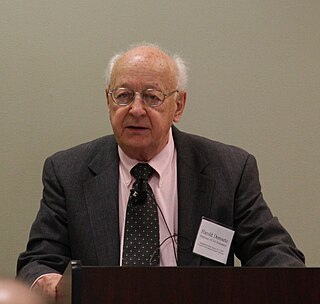
Harold Demsetz was an American professor of economics at the University of California at Los Angeles (UCLA).
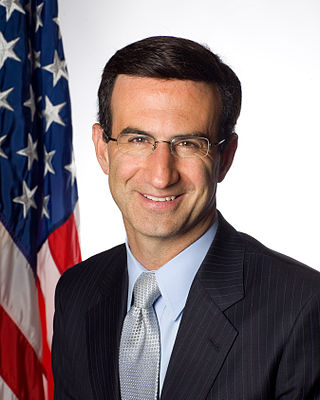
Peter Richard Orszag is the CEO of Financial Advisory at Lazard.

William Arthur Niskanen was an American economist. He was one of the architects of President Ronald Reagan's economic program and contributed to public choice theory. He was also a long-time chairman of the Cato Institute, a libertarian think-tank.
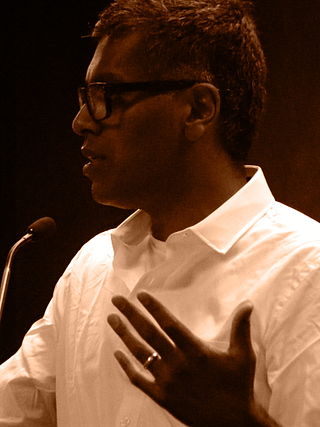
Sudhir Alladi Venkatesh is an American sociologist and urban ethnographer. He is William B. Ransford Professor of Sociology & African-American Studies at Columbia University, a position he has held since 1999. In his work, Venkatesh has studied gangs and underground economies, public housing, advertising and technology. As of 2018, he is the Director of Signal: The Tech & Society Lab at Columbia University.
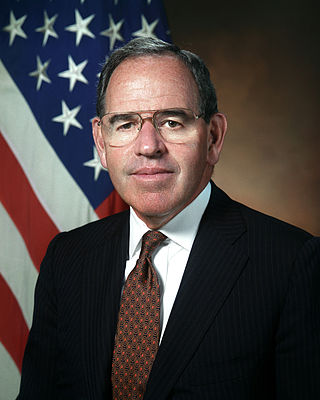
John Patrick White was an American university professor and a government official who served in the Clinton Administration.
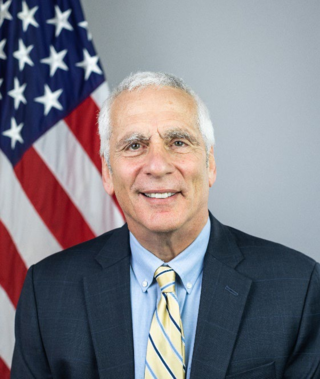
Jared Bernstein is an American economist. He is a senior fellow at the Center on Budget and Policy Priorities. From 2009 to 2011, Bernstein was the chief economist and economic adviser to Vice President Joe Biden in the Obama Administration. In 2008, Michael D. Shear described Bernstein as a progressive and "a strong advocate for workers". Bernstein is currently a Member of the Council of Economic Advisers in the Biden administration.

David Paul Goldman is an American economic strategist and author, best known for his series of online essays in the Asia Times under the pseudonym Spengler with the first column published January 1, 2000. The pseudonym is an allusion to German historian Oswald Spengler, whose most famous work, Decline of the West (1918), asserted that Western civilization was already dying. Goldman says that he writes from a Judeo-Christian perspective and often focuses on demographic and economic factors in his analyses; he says his subject matter proceeds "from the theme formulated by [Franz] Rosenzweig: the mortality of nations and its causes, Western secularism, Asian anomie, and unadaptable Islam." On March 14, 2015, Goldman and longtime Asia Times associate Uwe Von Parpart joined an investor group that took control of Asia Times HK Ltd. He became Deputy Editor (Business) at Asia Times in 2020. Goldman was global head of credit strategy at Credit Suisse 1999-2002, Global Head of Fixed Income Research for Bank of America 2002-2005, and Global Head of Fixed Income Research at Cantor Fitzgerald 2005-2008. He subsequently was a partner at Yunfeng Financial in Hong Kong, an investment bank later acquired by Jack Ma. He continues to advise CEOs and institutional investors. He is a regular contributor to Claremont Review of Books, Law and Liberty, Tablet Magazine, the Wall Street Journal, and First Things.

Peter T. Leeson is an American economist and the Duncan Black Professor of Economics and Law at George Mason University. In 2012 Big Think listed him among "Eight of the World's Top Young Economists". He is a Fellow of the Royal Society of Arts.
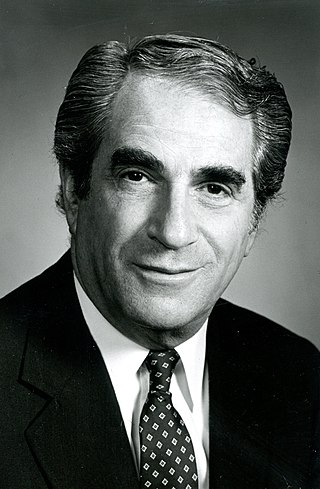
Leonard Alan Rapping was an American economist, who advised several Federal agencies. He also helped develop theories on the interplay of human behavior and business cycles. He was most famous for his work with Robert E. Lucas which laid the foundations for real business cycle theory, which holds that the financial expectations of business executives and consumers help mold their decisions, therefore influencing economic outcomes. That theory helped analyze the 1970s phenomenon of "stagflation", in which prices rose despite economic stagnation and recession.

Douglas William Elmendorf is an American economist who is the dean and Don K. Price Professor of Public Policy at the John F. Kennedy School of Government. He previously served as the Director of the Congressional Budget Office (CBO) from 2009 to 2015. He was a Brookings Institution senior fellow from 2007 to 2009, and briefly in 2015 following his time at the CBO, and was a director of the Hamilton Project at Brookings.
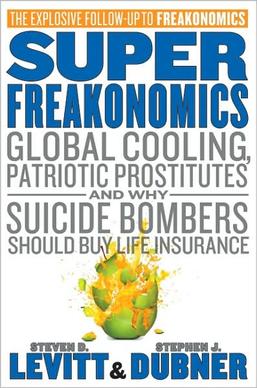
SuperFreakonomics: Global Cooling, Patriotic Prostitutes, and Why Suicide Bombers Should Buy Life Insurance is the second non-fiction book by University of Chicago economist Steven Levitt and The New York Times journalist Stephen J. Dubner, released in early October 2009 in Europe and on October 20, 2009 in the United States. It is a sequel to Freakonomics: A Rogue Economist Explores the Hidden Side of Everything.

Timothy Joseph Kane is an American economist who is the President and Founder of The American Lyceum, www.theamricanlyceum.org a 501(c)(3) organization seeking to promote solution-focused, civic debate. Kane was the JP Conte research fellow at the Hoover Institution, where he specialized in immigration reform. He is a former U.S. Air Force intelligence officer with two overseas tours of duty. After leaving the service, Kane explored a career in start-up technology firms while pursuing a Ph.D. in economics. After working as a teaching professor of economics, Kane served on the Joint Economic Committee of the U.S. Congress and was director of the Center for International Trade and Economics at The Heritage Foundation. Kane was also an editor of the 2007 Index of Economic Freedom, co-published by The Wall Street Journal and the Heritage Foundation, and is the author of the book Bleeding Talent: How the U.S. Military Mismanages Great Leaders and Why It's Time for a Revolution. Kane co-authored the book, Balance: The Economics of Great Powers from Ancient Rome to Modern America with Glenn Hubbard. Kane's latest book is The Immigrant Superpower: How Brains, Brawn, and Bravery Make America Stronger.

John Euler Whitley is an American government official who served as the acting United States Secretary of the Army from January 20, 2021, to May 28, 2021. He previously serviced as Assistant Secretary of the Army and acting director of cost assessment and program evaluation for the Department of Defense.


















